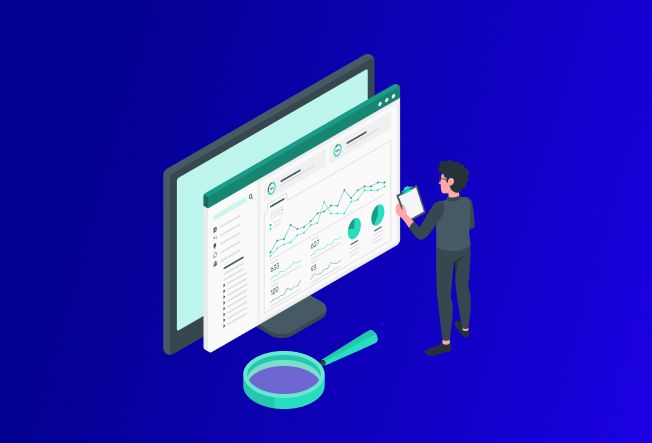Customer Service Module in Dynamics 365: A Complete Guide
Oct 18, 2023 Aiswarya Madhu
In a market where consumers are willing to invest 5% more for an enhanced customer experience, Customer Service module in Dynamics 365 opens the door to unparalleled connections.
Exceptional customer service not only boosts customer satisfaction but also drives loyalty and repeat business. By prioritizing customer needs and delivering personalized interactions, businesses can differentiate themselves and thrive in competitive markets.
On this page
- What is Customer Service Module in Dynamics 365
- Dynamics 365 Customer Service Capabilities
- How Does Customer Service Module Works in Dynamics 365
- Dynamics 365 Customer Service Customization Capabilities
- How D365 Customer Service Drives Cost Reduction
- Integration Capabilities in Customer Service Module
What is Customer Service Module in Dynamics 365
The Customer Service module in Dynamics 365 is designed for customer service automation, offering streamlined case and knowledge management. This module enables personalized service by providing a 360-degree view of customers and offers insights into service agents' performance with detailed dashboards and reports.
Dive deeper into the blog to know what these capabilities are and how you can leverage them to make every interaction count.
Dynamics 365 Customer Service Capabilities
The Customer Service module in Dynamics 365 offers a comprehensive suite of features and tools to help organizations deliver exceptional customer support.
Here are some of the key capabilities:
Core Functionalities
At the heart of Dynamics 365 Customer Service lies the case management system. Agents can efficiently track and handle customer issues by creating and managing cases, capturing all interactions related to each case.
The knowledge base serves as a valuable resource, enabling quick access to solutions and empowering agents to provide accurate and timely responses.
Additionally, the platform supports multi-channel engagement, allowing customers to connect via live chat, social media, Microsoft Teams, SMS, and more, ensuring seamless communication across various touchpoints.
AI-Driven Insights
Dynamics 365 Customer Service leverages AI-powered analytics to provide deeper insights into customer behaviors and preferences. By analyzing customer interactions, agents can gain a better understanding of common issues and trends, enabling them to make data-driven decisions to improve overall service quality and efficiency.
Collaboration Tools
Seamless collaboration is crucial for effective issue resolution, and Dynamics 365 Customer Service facilitates this through its tight integration with Microsoft Teams. Agents can easily collaborate with subject matter experts and cross-functional teams to quickly address complex customer inquiries, reducing resolution times and enhancing the overall customer experience.
Performance Monitoring
Monitoring service performance and productivity is essential for continuous improvement. Dynamics 365 Customer Service offers detailed dashboards and comprehensive reports, allowing managers to track key metrics such as service levels, agent productivity, and customer satisfaction. These insights enable data-driven decision-making and help identify areas for optimization.
Administrative Capabilities
The Customer Service Admin Center serves as a centralized hub for managing core customer service features and channels. Administrators can set up efficient case routing and queue configurations, establish service-level agreements (SLAs) to ensure timely issue resolution, and schedule services to optimize resource utilization. The platform also supports unified routing for work items across different communication channels, providing a seamless experience for both agents and customers.
Productivity Tools
Dynamics 365 Customer Service comes equipped with various built-in tools designed to boost agent productivity and efficiency. The Customer Service Workspace consolidates multiple sessions, case management, chat, channels, voice interactions, knowledge management, and scheduling into a single interface, enabling agents to handle customer inquiries more effectively. The Customer Service Hub offers essential features like case management, channels, knowledge management, insights, and scheduling in a centralized location, while the Customer Service Team Member provides read-only access to knowledge management and scheduling features.
Accessibility and Mobility
Dynamics 365 Customer Service is committed to inclusive design, ensuring that the platform is accessible to all users, regardless of their abilities. The platform is also available as mobile apps, allowing agents to manage customer service from various devices and locations, ensuring continuous support and responsiveness.
How Does Customer Service Module Works in Dynamics 365
Customer Interaction and Case Submission
The journey begins when customers report issues through various channels such as email, phone, chat, or social media. Customer Service module in Dynamics 365 captures these issues as cases, consolidating all interactions into a single system for efficient tracking and management.
Case Management and Swift Issue Resolution
Once an issue is submitted, agents access these cases and use the knowledge base to find quick resolutions. By leveraging stored information and best practices, agents can resolve issues promptly, ensuring customers receive accurate and timely support.
AI-Driven Insights for Proactive Issue Identification
As agents work on resolving cases, AI continuously analyzes historical data to identify trends and common issues. This proactive approach helps the company spot and address potential problems before they become widespread, improving overall product quality and enhancing customer satisfaction.
Collaborative Resolution through Teams Collaboration
Sometimes, resolving an issue requires collaboration with product experts or other team members. Agents can easily collaborate in real-time via Microsoft Teams within the Dynamics 365 platform, which helps minimize resolution times and provides a seamless support experience for customers.
Resource Optimization and Efficient Task Management
Throughout this journey, the platform efficiently schedules tasks and manages agent workloads to ensure optimal resource use. This reduces idle time and improves productivity, allowing agents to handle more cases effectively.
Continuous Improvement from Learning Resolved Cases
Finally, the journey includes a continuous improvement loop where insights from resolved cases are analyzed to guide process enhancements and update the knowledge base. This ensures that the support process becomes increasingly efficient, and customer experiences improve over time.
Dynamics 365 Customer Service Customization Capabilities
By leveraging customization capabilities, Dynamics 365 Customer Service module empowers businesses to create a highly tailored, efficient, and responsive customer service environment.
Workflow Customization for Case Management
Dynamics 365 Customer Service allows businesses to customize case management workflows. This means you can automate various customer service processes and implement complex rules tailored to your needs. For example, you can set up automatic escalation rules for high-priority cases or create specific workflows that assign cases to the most appropriate team members based on expertise and availability.
Data Structure Customization
The platform offers robust data structure customization options. You can add or rename attributes for objects such as Customer, Contact Person, and Case. This capability allows you to track and utilize information specific to your business. For instance, if you need to record unique customer identifiers or custom status codes, you can easily add these fields to your data model and incorporate them into your workflows.
Automation of Routine Operations
Dynamics 365 Customer Service excels in automating routine operations and business rules. This feature can help reduce manual tasks and improve efficiency. For example, you can automate the process of sending follow-up emails after a case is resolved or set up rules that trigger alerts when a case remains unresolved for a certain period. These automations ensure that your team can focus on more complex and value-added tasks.
Custom Form Creation
Creating custom forms is another powerful capability of Dynamics 365 Customer Service. You can design forms for various purposes, such as surveys, quizzes, and polls, to gather customer feedback and measure employee satisfaction. For instance, after resolving a support case, you can send a custom survey form to the customer to gather feedback on their experience. These forms can be fully customized to capture the specific data points you need, providing valuable insights for continuous improvement.
Customer Interaction and Case Submission
The journey begins when customers report issues through various channels such as email, phone, chat, or social media. Customer Service module in Dynamics 365 captures these issues as cases, consolidating all interactions into a single system for efficient tracking and management.
Case Management and Swift Issue Resolution
Once an issue is submitted, agents access these cases and use the knowledge base to find quick resolutions. By leveraging stored information and best practices, agents can resolve issues promptly, ensuring customers receive accurate and timely support.
AI-Driven Insights for Proactive Issue Identification
As agents work on resolving cases, AI continuously analyzes historical data to identify trends and common issues. This proactive approach helps the company spot and address potential problems before they become widespread, improving overall product quality and enhancing customer satisfaction.
Collaborative Resolution through Teams Collaboration
Sometimes, resolving an issue requires collaboration with product experts or other team members. Agents can easily collaborate in real-time via Microsoft Teams within the Dynamics 365 platform, which helps minimize resolution times and provides a seamless support experience for customers.
Resource Optimization and Efficient Task Management
Throughout this journey, the platform efficiently schedules tasks and manages agent workloads to ensure optimal resource use. This reduces idle time and improves productivity, allowing agents to handle more cases effectively.
Continuous Improvement from Learning Resolved Cases
Finally, the journey includes a continuous improvement loop where insights from resolved cases are analyzed to guide process enhancements and update the knowledge base. This ensures that the support process becomes increasingly efficient, and customer experiences improve over time.
How D365 Customer Service Drives Cost Reduction and Speedier Operations
Here are some of the ways Customer Service module in drive cost reduction and speedier operations:
- Operational Efficiency:
By streamlining processes and offering unified routing, D365 Customer Service can reduce the time taken to address customer issues, leading to operational cost savings. - Resource Management:
Effective management of resources through scheduling, unified routing, and productivity tools can optimize resource allocation, reducing idle time and improving overall efficiency. - Reduced Need for Multiple Tools:
Integration of various functionalities within Dynamics 365 Customer Service reduces the need for multiple standalone tools, potentially cutting down on licensing costs for disparate software. - Improved First-Time Resolution:
Access to a comprehensive knowledge base and AI-driven insights can enhance the ability to resolve issues on the first contact, reducing the need for multiple interactions and thus cutting down on operational costs.
Leverage the Power of Customer Service in Dynamics 365
Integration Capabilities in Customer Service Module
Integrating Dynamics 365 Customer Service module with other systems enhances its functionality, providing a seamless experience for both agents and customers.
Here are some key integrations that can add significant value:
D365 Customer Service ERP Systems Integration
D365 Customer Service ERP Systems Integration allows agents to access real-time information about products, services, stock levels, pricing, and order statuses. This integration ensures agents can provide accurate and up-to-date responses to customer inquiries, improving service efficiency and customer satisfaction.
D365 Customer Service Sales and Marketing Tools Integration
Integrating with tools like Dynamics 365 Sales and Dynamics 365 Customer Insights enables agents to view comprehensive customer purchasing histories and preferences directly within the customer service interface. This integration helps marketers craft personalized email campaigns, targeting customers with relevant offers and discounts, especially those who have expressed dissatisfaction, thereby enhancing customer loyalty and retention.
D365 Customer Service Field Service Software Integration
For cases that require on-site visits, D365 Customer Service Field Service Software Integration streamlines coordination between customer service agents and field technicians. Agents can create and manage work orders, schedule visits, and track the status of field service activities, ensuring timely and effective resolution of customer issues.
D365 Customer Service Computer-Telephony Integration
Integrating a CTI system with Dynamics 365 Customer Service allows agents to handle customer calls directly from the platform. This setup reduces the need to switch between systems, increasing response times and enabling agents to provide faster and more efficient support.
D365 Customer Service Document Management Software Integration
By integrating document management software, agents can quickly create, search, and edit documents such as product guides and troubleshooting manuals within Dynamics 365 Customer Service. This integration ensures that all necessary documentation is easily accessible, helping agents to resolve customer issues more effectively.
Dynamics 365 Field Service vs Customer Service: A Comparative Analysis
Understanding the nuances between different modules is crucial to optimizing your operations. Dynamics 365 Field Service and D365 CS, although distinct, share some overlapping features that cater to diverse aspects of customer interaction and service management.
Overlapping Features
- Service Level Agreement (SLA) Management: Both Field Service and Customer Service offer robust SLA management tools, ensuring that service commitments are met efficiently.
- Work Distribution and Communication: Both modules streamline work distribution through automated workflows and facilitate seamless communication between teams and customers, ensuring a cohesive service experience.
- Advanced Resource Identification: Both Field Service and Customer Service provide features for identifying and assigning the most suitable resources based on skills, location, and other criteria, optimizing service delivery.
- Customer Portals: Both modules come with portals that enable customer self-service, allowing clients to schedule appointments, access information, and receive notifications, enhancing overall customer engagement.
- Intelligent Reporting: Both modules offer intelligent reporting capabilities, providing actionable insights and predictive indicators, enabling data-driven decision-making.
Differences:
- Focus and Scope: Field Service primarily focuses on optimizing field operations, including work order management, labor scheduling, asset reservation, and remote monitoring. On the other hand, Customer Service emphasizes customer delight through comprehensive activity tracking, case management, knowledge base utilization, and AI-driven analytics.
- Mobile Tools: While both modules offer mobile capabilities, Field Service provides specialized tools such as mobile field guides, instructional resources, and remote assist features via HoloLens, enhancing technicians' efficiency in the field.
- Remote Monitoring: Field Service includes features for remote monitoring of serviceable equipment, allowing businesses to track the status of assets and proactively address issues before they escalate.
Explore the vital role of work orders and how Dynamics 365 Field Service implementation can enhance your efficiency and customer satisfaction.
When to Use D365 Customer Service & Field Service Together
Imagine a company that specializes in home appliance repairs. They have a team of field service technicians who visit customers’ homes to fix appliances. Simultaneously, they have a customer service team that handles incoming issues and requests, such as scheduling appointments, clarifying service details, and addressing customer concerns.
Scenario 1 (Using Dynamics 365 Field Service Alone):If the company only uses Dynamics 365 Field Service, they can efficiently manage the field technicians' schedules, work orders, and onsite repairs. However, handling customer inquiries and issues might be less organized, leading to potential miscommunication or delayed responses.
Scenario 2 (Using Both Dynamics 365 Field Service and Customer Service Together):In this case, the company integrates Dynamics 365 Field Service with Customer Service. When a customer calls with an issue, the customer service representative logs the case into Dynamics 365 Customer Service. If the problem requires an onsite visit, the case seamlessly moves to Dynamics 365 Field Service. The field technician receives the work order, performs the repair, and updates the case status. Throughout this process, the customer service team can monitor the case's progress, ensuring a consistent and smooth customer experience.
By using both applications together, the company can effortlessly transfer information between teams. For instance, if a customer reschedules an appointment due to a new issue, this information is updated in both systems, allowing both the customer support team and field technicians to stay informed.
Learn how you can streamline work orders with Dynamics 365 Field Service
Summing Up
Nalashaa Digital transforms D365 CS module to seamlessly align with your business processes. Our dedicated implementation, support plans, and integration assistance ensure optimal performance, helping you craft exceptional customer experiences. So, fill the form below to get in touch with us and redefine you your customer service capabilities
Recent Posts

A Complete Guide to Dynamics 365 Security and Compliance
Mar 12, 2025

Dynamics AX 2012 End of Life: Time to Transition to Dynamics 365 (F&SCM) Now
Oct 17, 2023

Serving customers the Dynamics way
Feb 05, 2020
Category
Our Expertise
About Author

Aiswarya Madhu
Aiswarya Madhu is an experienced content writer with extensive expertise in Microsoft Dynamics 365 and related Microsoft technologies. With over four years of experience in the technology domain, she has developed a deep understanding of Dynamics 365 applications, licensing, integrations, and their role in driving digital transformation for organizations across industries.
Never Miss News
Want to implement Dynamics 365?
We have plans which will meet your needs, and if not we can tweak them around a bit too!


